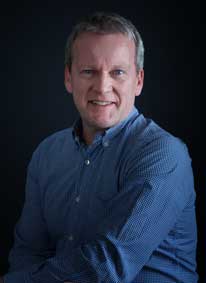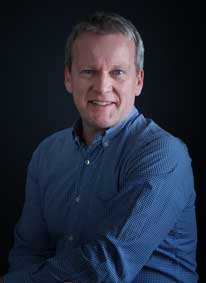Distinguished Visiting Scholars Program
 KINGSTON, R.I. – December 2, 2013– “To prepare young people for a competitive economy, our schools must have less competition.”
KINGSTON, R.I. – December 2, 2013– “To prepare young people for a competitive economy, our schools must have less competition.”
This quotation, which seems contrary to the policies affecting public education in the United States, can be fournd on the website of Pasi Sahlberg, a leader of education reform in Finland and the next guest of the University of Rhode Island’s Distinguished Visiting Scholars Program.
Sahlberg, a world-renowned education scholar who helped turn Finland’s public school system into one of the best in the world, will visit the Kingston campus from Monday, Dec. 9 through Wednesday, Dec. 11. Three free, public events are planned, including his lecture to be held Tuesday, Dec. 10 at 7:30 p.m. at Edwards Hall as part of the URI Honors Colloquium, “Great Public Schools: Everyone’s Right? Everyone’s Responsibility?”
Sahlberg’s colloquium lecture, Finnish Lessons: What can the world learn from educational change in Finland?, is based on his best-selling book, Finnish Lessons, a firsthand, comprehensive account of how Finland built a world-class education system during the past three decades. Sahlberg traces the evolution of education policies in Finland and highlights how they differ from the United States and other industrialized countries.
“Dr. Sahlberg’s comparison of U.S. and Finland’s public education policies reveals stark contrasts in philosophy: competition versus collaboration; standardization versus personalization; test-based accountability versus trust-based responsibility; school choice versus equity; and education as industry versus education as human right,” said Diane Kern, URI associate professor of education and colloquium co-coordinator. “I believe we need to better understand the educational successes of countries like Finland to make much-needed changes in the way we teach our public school children and prepare their teachers.”
Kern and colloquium co-coordinator David Byrd, professor and director of URI’s School of Education, hope to engage the entire community in an in-depth discussion of public education policy and practice during Sahlberg’s visit to Rhode Island.
Sahlberg will meet with school superintendents, leaders of the Rhode Island Department of Education, the Board of Education, teacher union leaders, students and teacher leaders as well as teacher educators.
In addition to the honors colloquium keynote address on Dec. 10, the public can attend a panel discussion with Sahlberg and other international scholars Wednesday, Dec. 11 from 9 to 11:30 a.m. in Lippitt Hall, Room 402, 5 Lippitt Road, and a School of Education open house that afternoon from 2 to 4 in the URI Carothers Library, third-floor Galanti Lounge, 15 Lippitt Road. The events are part of URI’s Distinguished Visiting International Scholars Program designed to support the scholarly mission and global perspective of URI, especially in areas of strategic focus that bridge disciplinary areas.
Note to media, the speaker will be available for interviews:
• Monday, Dec. 9, 2:15 to 3:15 p.m. at the Alumni Center conference room, 73 Upper College Road, Kingston.
• Tuesday, Dec. 10, 3:30 to 5:30 p.m., Chafee Social Science Center, room 305, 142 Flagg Road, Kingston.
To make arrangements, please contact Dave Lavallee, URI Marketing and Communications, 401-874-5862.
Those unable to attend the lecture can watch it live online URI Live! 
Sahlberg is the director general of Centre for International Mobility and Cooperation at the Finnish Ministry of Education and Culture. His expertise includes international education policies, educational change, the future of schooling, and classroom teaching and learning. He has a doctorate degree in educational sciences, master’s degree in mathematics, and a teacher’s diploma in mathematics and science.
The Distinguished Visiting International Scholars Program provides funds to host two international scholars or scholar-practitioners to URI each semester for three- to five- day visits. Its goals are to demonstrate commitment to research and scholarship, strengthen the emphasis on global learning and discovery, and enhance the visibility of URI around the country and world. The visiting scholars program is sponsored by the Provost’s Office, with support from the Honors Program and the School of Education.
The colloquium is generously supported by:
Major Sponsor: URI Honors Program
Sponsors: URI Office of the President; URI Office of the Provost; The Mark and Donna Ross Honors Colloquium Humanities Endowment; The Thomas Silvia and Shannon Chandley Honors Colloquium Endowment, as well as the following URI colleges, departments and offices, College of Human Science and Services, Talent Development, Multicultural Center, University College, WRIU’s The Beauty Salon, College of Arts and Sciences, The Harrington School of Communications and Media, John Hazen White, Sr. Center for Ethics and Public Service, Department of Gender and Women Studies, College of Pharmacy, College of Engineering, College of the Environment and Life Sciences, College of Business Administration, College of Nursing, Division of Student Affairs, Department of Marketing and Communications, Department of Publications and Creative Services, and Instructional Technology and Media Services. Rhode Island Public Radio is also a sponsor.
For more information on colloquium events contact Deborah Gardiner at 401-874-2381 or debg@uri.edu
For information about ways to support the Honors Colloquium, contact URI Professor Lynne Derbyshire, Honors Program director, at 401.874. 4732. If you have a disability and need an accommodation, please call 401.874.2303 at least three business days in advance. For TTY assistance, please call the R.I. Relay Service at 800.745.5555.
For more information contact the School of Education: (401) 874-4068
This press release was written by Caitlin Musselman, a URI Marketing and Communications intern and a public relations and political science major.

